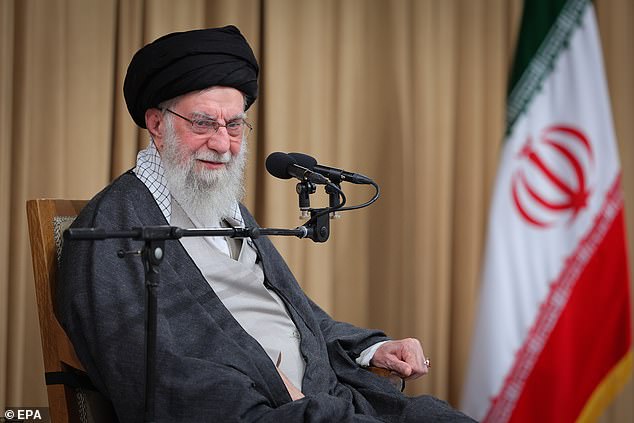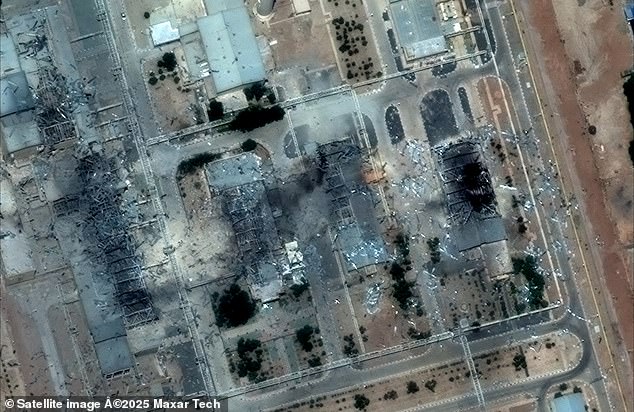Iran has threatened to axe its cooperation with the UN nuclear watchdog if sanctions by western nations are reimposed.
Iran‘s top security body said that action by Britain, France and Germany to reimpose UN sanctions will ‘effectively suspend’ its cooperation with the UN nuclear watchdog.
The move has reignited fears that the middle eastern nation could begin enriching Uranium again.
‘Despite the foreign ministry’s cooperation with the (International Atomic Energy) Agency and the presentation of plans to resolve the issue, the actions of European countries will effectively suspend the path of cooperation with the agency,’ the Supreme National Security Council said in a televised statement.
Britain, France and Germany launched a 30-day process last month to reimpose UN sanctions, accusing Tehran of failing to abide by a 2015 deal with world powers aimed at preventing it from developing a nuclear weapon.
The UN security council failed to pass a resolution which would have stopped the sanctions coming back into force on Friday.
The sanctions will return at the end of the month unless the nine members of the security council agrees to prolong the sanctions relief.
The resolution was only supported by China, Russia, Pakistan and Algeria.

Iranian supreme leader Ayatollah Ali Khameni speaking during a meeting with members of the Iranian cabinet in Tehran
The decision is likely to put a further strain on relations between Iran and the west.
As part of terms agreed in the 2015 nuclear deal with Iran, any UN member can call for sanctions to be resumed within 30 days.
The sanctions include an arms embargo, asset freezes and travel bans.
The UN’s nuclear watchdog chief warned in June that Iran could start enriching Uranium in ‘a matter of months’ following the country’s 12-day war with Israel.
Rafael Grossi, head of the International Atomic Energy Agency, said US air strikes on three Iranian nuclear facilities had caused severe but ‘not total’ damage.
His remarks cast doubt on President Donald Trump’s claim that the sites were ‘totally obliterated’ by the ‘bunker-busting’ bomb and missile strikes.
Mr Trump previously warned that he would consider bombing Iran again if intelligence concluded the country could enrich uranium to concerning levels.
Mr Grossi said: ‘Frankly speaking, one cannot claim that everything has disappeared and there is nothing there.

Satelitte images show the precision of the US attacks on Iran’s primary nuclear facility in Isfahan in June
‘The capacities they have are there. They can have, you know, in a matter of months, I would say, a few cascades of centrifuges spinning and producing enriched uranium, or less than that.’
Asked about reports of Iran moving its stock of enriched uranium ahead of the US strikes, Mr Grossi said it was not clear where that material was.
‘Some could have been destroyed as part of the attack, but some could have been moved,’ he added.
Asked if Iran could still be in a position to ‘sprint towards a bomb’ if it wanted to, Mr Grossi said: ‘Iran had a very vast ambitious program, and part of it may still be there, and if not, there is also the self-evident truth that the knowledge is there. The industrial capacity is there.
‘Iran is a very sophisticated country in terms of nuclear technology.’












